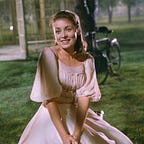A Definitive, Totally Objective, Ranking of Jane Austen’s Novels
Okay, well — not really. And Jane Austen’s novels defy ranking, anyway, but reading through all six published novels over the past few months does beg comparison, so please do allow my attempt. And please feel free to contest.
Without further ado, herewith is my personal ranking of all six published Jane Austen novels:
- Emma — cleverest of them all, and most perfectly exemplifies her genius in character portrait and nuances of human behavior, wit and humor, romance, writing prowess (her use of free indirect speech!), and language (If I loved you less! I might be able to talk about it more!!).
- Persuasion — melancholy, mature, beautiful, and the most unique — ‘Persuasion’ marked Austen’s first foray into romanticism in mood and imagery. Aren’t we all half-agony, half-hope.
- Northanger Abbey — just for the sheer pure pleasure of it. Vastly underrated and the most enjoyment I’ve gotten out of Austen’s novels, and also has her best hero in my view in sarcastic bookish witty feminist Henry Tilney!
- Mansfield Park — arguably the most socially aware of Austen’s novels and has the most complex character dynamics — I personally refer to this as the Sally Rooniest of her novels (lol); and while Fanny Price is historically the least liked of Austen’s heroines being so painfully passive and timid, it was her I felt most closest to, whether or not I desired to.
- Pride & Prejudice — everybody’s favorite, Austen’s crowning jewel etc. etc., and also the first Austen I picked up when I was barely a teenager (as I’m sure is the case with many). Mayhaps it’s just that its plot and characters are all too familiar to me now, and it certainly is Austen at her most charming and I’ll always love Lizzie and the Bennetts, but Darcy simply never appealed to me the same way he has for so many! Nevertheless, for all its charm and wit, ‘Pride & Prejudice’ will always be a classic with good reason.
- Sense & Sensibility — unfortunately this just was the most arduous of her novels for me, and it might just be that its central characters, sisters Elinor and Marianne, are such opposites that they don’t feel as fully fleshed out as I would have wished, and I have to admit the large age gap between one of its central romantic couplings was never not just quite unsettling all the way through.
Anyways, and I think I speak for many in saying this — thank you, Miss Austen, for your wit, satire, subtle moral undertones, and keenly perceptive eye towards human nature. Having you around in my bag these last few months felt like having the best kind of friend from the 18th century around to make little human observations with. Half of me will always be made of hope — or else I’ll keep trying.
